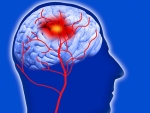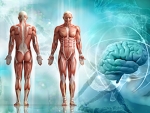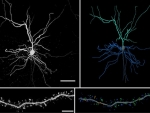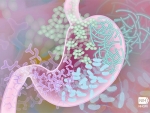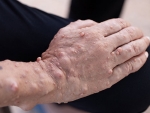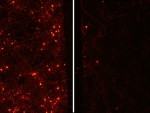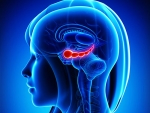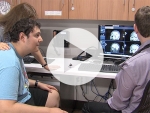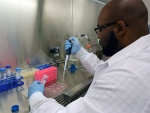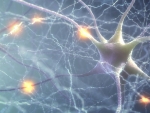Displaying items by tag: neuroscience
Tagged under
Graduates of the UAB Anatomical Sciences program will help meet a growing need for anatomists in health care programs.
Tagged under
An animal model for mild traumatic brain injury shows microscopic neuropathology, as well as neurophysiological and biochemical changes.
Tagged under
Tagged under
Dawson, a junior majoring in neuroscience, also won the Interview and Talent awards and was awarded $2,900 in scholarships.
Tagged under
More than a third of people have the biology of Alzheimer’s disease but not the symptoms. Understanding why could lead to new therapies.
Tagged under
UAB investigators are looking at the intriguing possibility of a connection between the gut microbiome and Parkinson’s disease.
Tagged under
Examination of a larger group of patients extends the clinical manifestations first described 11 years ago.
Tagged under
Tagged under
UAB was part of a national, multisite study that showed a drug for multiple sclerosis was effective in slowing down brain atrophy, or shrinkage.
Tagged under
The goal is an early warning system to block incipient seizures for patients where medications have failed.
Tagged under
UAB research suggests protein misfolding, perhaps caused by a reduction in a regulatory protein, could be associated with Parkinson’s disease.
Tagged under
These newborn neurons in the dentate gyrus become less excitable after three weeks, a crucial step for mature functioning.
Tagged under
Early results for a UAB-developed viral immunotherapy to treat brain tumors in children demonstrate safety and tolerability in Phase I studies.
Tagged under
UAB’s PREP Scholars proves successful by furthering student dreams as it receives a grant to continue preparing minority baccalaureate students for graduate programs.
Tagged under
- release
- graduate school
- college of arts and sciences
- department of biochemistry and molecular genetics
- department of biology
- department of cell developmental and integrative biology
- neuroscience
- department of genetics
- division of clinical immunology and rheumatology
- department of biomedical engineering
- school of engineering
- department of neurology
- school of medicine
A neuron model of Parkinson’s disease and Lewy body dementias shows defects that could suggest treatments to halt or reverse cognitive impairments before the neurons die.
Tagged under
Constraint-Induced Therapy, developed as a rehabilitation technique following stroke, appears beneficial for patients with multiple sclerosis, according to new findings from UAB.
Tagged under
UAB, home of one of four McKnight Brain Institutes, hosted the group’s annual inter-institutional meeting in April.
Tagged under
Tagged under
- release
- commencement
- collat school of business
- college of arts and sciences
- school of engineering
- school of health professions
- graduate school
- school of education
- school of medicine
- school of nursing
- school of public health
- department of pathology
- neuroscience
- honors college
- science and technology honors program
Senior Mugdha Mokashi found her passion for public service while earning two degrees and preparing for medical school.
Tagged under
